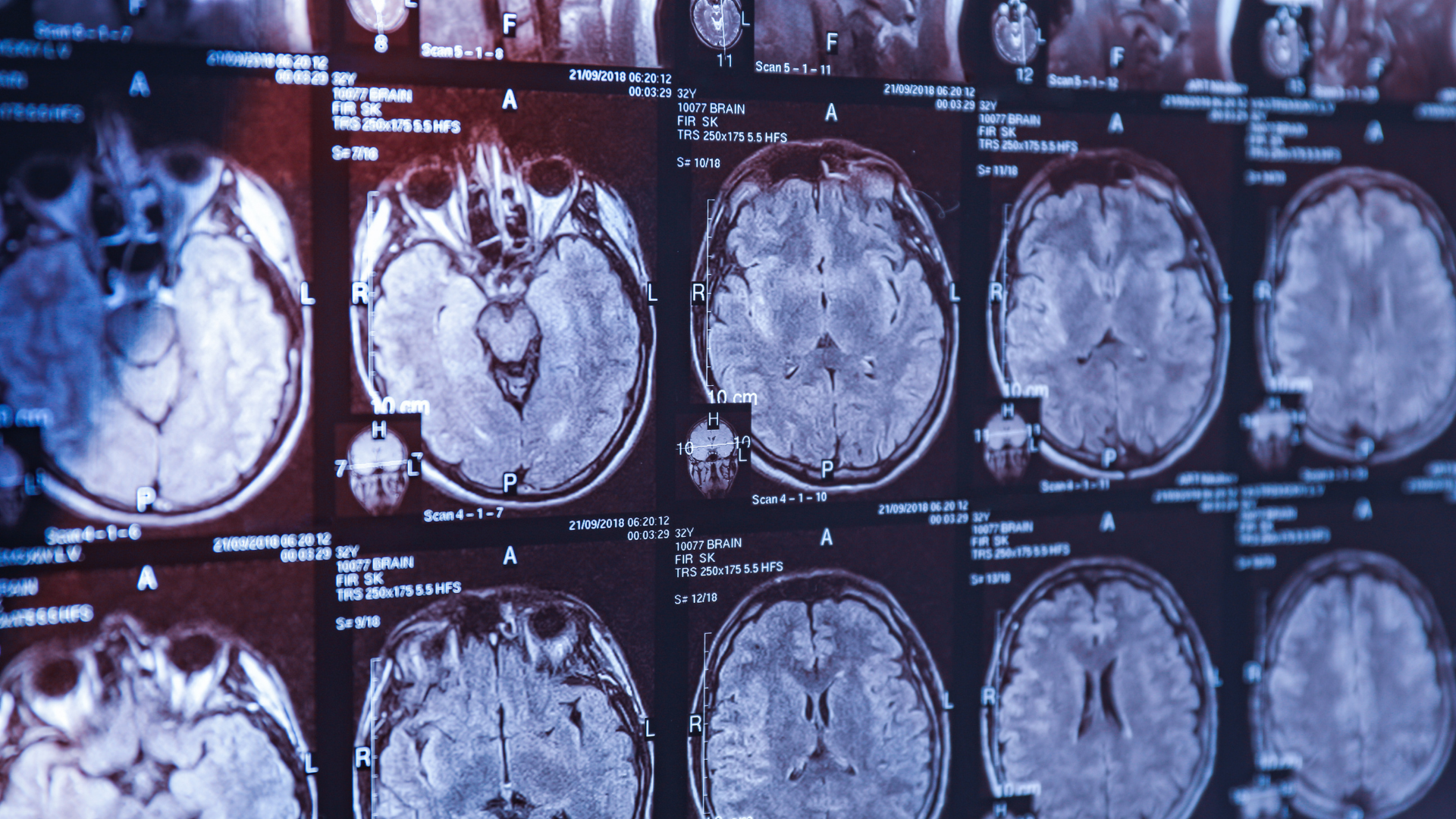What Are the Symptoms of a Traumatic Brain Injury?
Kevin Biniazan—March 15, 2021

A traumatic brain injury (TBI) results from a blow, jolt, or penetrating injury to the head that causes a disruption of normal brain function. TBI is an incredibly common type of injury that afflicts about 2 million people each year, but they often go undetected and untreated.
Sometimes a traumatic brain injury is obvious—for example if the person is unconscious and bleeding after the accident. However, at other times, the TBI is less noticeable. Victims of TBI may feel fine after an accident but then develop alarming and dangerous symptoms in the following hours or days.
That’s why it’s important to recognize the various symptoms of traumatic brain injuries. If signs of TBI arise, immediately seek medical attention. Doing so can help you recover quickly and prevent more serious symptoms, including disability or death. If you or a loved one experienced these life-altering effects of TBI, our Virginia Beach and Richmond TBI lawyers can help you move forward from your injury.
Symptoms of a Traumatic Brain Injury
Symptoms of traumatic brain injuries can take many forms, depending on the severity of the injury. While TBI are categorized as mild, moderate, or severe, their symptoms can range broadly.
Symptoms of a Mild Brain Injury
A person with a mild TBI may only lose consciousness for a few seconds, minutes, or not at all. But left untreated, a mild TBI may actually become quite serious, resulting in further brain damage, disability, and possibly death.
Some of the most common symptoms associated with mild TBI are:
- Dizziness
- Confusion
- Ringing in ears
- Headache
- Temporary loss of consciousness
- Nausea
- Lightheadedness
- Blurred vision or tired eyes
While these symptoms are usually experienced in the immediate aftermath of a head injury, there are additional delayed symptoms that may occur following a mild TBI. These are often more serious and may indicate long-term brain damage. Some of these symptoms include:
- Memory problems
- Depression
- Fatigue
- Insomnia or a change in sleep patterns
- Migraines
- Behavioral or mood changes
Symptoms of Moderate to Severe Brain Injury
While those suffering from moderate and severe traumatic brain injuries may share symptoms with those experiencing mild TBI, they may also experience even worse symptoms that can physically and permanently impact the person who suffers the injury.
In addition to the symptoms above, some of the most significant problems include:
- Limb numbness or weakness
- Convulsions
- Seizures
- Speech impediments
- Migraine-level headaches
- Confusion and agitation
- Loss of consciousness
- Repeated nausea and vomiting
- An inability to wake up from sleep
- Slurred speech
- Loss of coordination
- Restlessness or agitation
The most severe brain injuries can also cause a person to go into a coma. An untreated and undetected TBI may even increase the risk one has of developing diseases that affect brain functions, such as Alzheimer’s or Parkinson’s disease.
Unfortunately, because these injuries often go unnoticed, someone suffering from the long-term side effects of a mild TBI may feel that the delayed symptoms of persistent cognitive or social difficulties are without explanation. They might not be able to connect what they thought was a minor bump to the head to the difficulties they are facing. Even those who seek help for TBI may not receive adequate treatment from health care professionals.
Measuring Traumatic Brain Injuries
In order to diagnose and treat traumatic brain injuries, health care providers use a scale to rank their level of injury.
A person with a mild TBI
- Remained conscious or lost consciousness for less than 30 minutes
- Did not experience memory loss, or only experienced memory loss of less than 24 hours
- GCS (see below) of 13 to 15
A person with a moderate TBI
- Were unconscious between 30 minutes and 24 hours
- Experienced memory loss from 24 hours to one week
- GCS of 9 to 12
A person experiencing Severe TBI
- Was unconscious for longer than 24 hours
- Experienced memory loss of more than seven days
- GCS was below 8
Can I Have a Brain Injury and Not Know It?
Absolutely. Many brain injuries go undiagnosed because symptoms arise long after the accident or might seem unrelated to a head injury. Mental and emotional signs of TBI, like difficulty concentrating or behavioral changes, are oftentimes the hardest symptoms to link to a head injury.
How Long After a Head Injury Can Symptoms Occur?
Unfortunately, there is no firm answer regarding how long you should watch for symptoms of a TBI following a head injury.
In some cases, symptoms are immediate and obvious; in others, signs of a TBI may not appear for hours, days, or even weeks. Some people may be completely unaffected by their injury immediately following the accident, but their condition may gradually or suddenly worsen in the weeks that follow.
Even more worrisome, sometimes symptoms can be subtle and seem completely unrelated to a brain injury.
When Should I See My Doctor?
If you experience any of the symptoms listed above after an accident—particularly painful headaches, vomiting, trouble moving your limbs, or increasing lethargy or confusion—you should immediately see your doctor or go to the emergency room.
It’s important to watch for any physical or mental changes, no matter how small, following an accident involving a head injury and to immediately seek medical attention when those arise.
How Is a Traumatic Brain Injury Diagnosed?
Health care providers use a suite of different tests and measurements to diagnose TBI and its severity, usually employing several of these tests together to diagnose and plan the patient’s treatment moving forward.
Imaging Tests
Health care providers will take images of the person’s brain to study the injury if they believe they may have a TBI.
These imaging tests may include a CT (computerized tomography), which X-rays the brain from different angles to form a 360-degree image, capturing any bleeding, bruising, or other damage.
Another imaging test, magnetic resonance imaging (MRI), produces a more detailed picture of the brain using magnets and radio waves but requires more time.
Glasgow Coma Scale (GCS)
The GCS measures the patient’s ability to function in three specific fields: The ability to move limbs intentionally or in response to pain, the ability to open their eyes, and their ability to speak normally or, in some cases, to speak at all. Doctors use these categories to calculate the patient’s responses and to diagnose their level of TBI.
Other Tests to Determine TBI
- Swallowing tests
- Breathing tests
- Cognition tests
- Speech and language tests
- Communication skills tests
- Neuropsychological tests
- Blood Tests
- Scientists are still developing research using blood tests to diagnose TBI. One blood test diagnosis mild TBI by identifying two proteins that are found in the bloodstream after a TBI.
What to Do After a TBI
If you or a loved one think you may be experiencing a TBI following an accident, you should immediately seek medical attention. The sooner a medical provider can take action to diagnose and treat a TBI, the less damage will be done by this devastating injury.
Moving forward from a TBI can be costly, including extensive medical bills, rehabilitation, and loss of income, leaving your life changed forever. If your traumatic brain injury is the result of another party’s negligence from medical malpractice, an auto accident, or tractor-trailer accident, you deserve compensation—and we may be able to help.
Our Richmond and Virginia Beach brain injury lawyers consider TBIs some of the most severe injuries that a person can sustain. We work hard to represent those who suffer this type of damage because we know the long-term costs, both physical and emotional, of TBI. You can count on Breit Biniazan to be your advocate from start to finish. We’ll not only pursue compensation, but we’ll also work to obtain justice on your behalf. Contact us to discuss your case during a free consultation.
By Kevin Biniazan
Partner
Kevin is a trial attorney who passionately represents individuals injured or harmed by the carelessness of others. Between jury trials and settlements, Kevin has secured more than $125 million for his clients in his first seven years of practice.
Categories:
Office Locations
Related Posts
Categories
We are personal injury attorneys
Fill out our contact form to speak to our experienced Virginia trial attorneys. Breit Biniazan has helped recover millions of dollars in cases. Learn how we can help you today.
